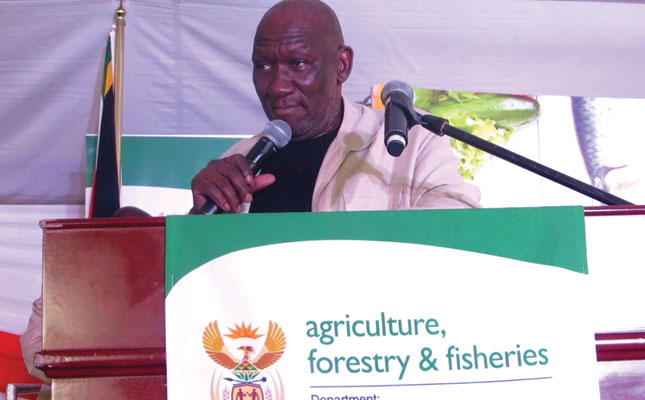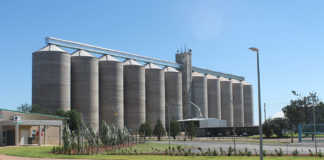
Speaking at the recent Youth and Farmer Imbizo hosted by the Department of Agriculture, Forestry and Fisheries (DAFF) in Delmas, Deputy Minister Bheki Cele said a significant budget is needed for the department to implement the Maputo Declaration, issued at the 2003 African Union summit in Mozambique.
The Maputo Declaration commits African countries to set aside 10% of their national budgets to agriculture development.
Cele said “it was calculated that 10% [of the national budget of R1,56 trillion] would equate to [around] R158 billion, which “agriculture doesn’t have the capacity to spend in a year”. He added that “the current R6 billion was not sufficient”, and that “R20 billion was needed”.
“We have about 300 PhD students now in agriculture; they are requesting resources so that they can start farming, and there is a lot of support from other sectors for science supporting programmes for agriculture as re-iterated by Education Minister Naledi Pandor, therefore we need those resources to do that,” said Cele.
Steve Galane, DAFF spokesperson, told Farmer’s Weekly that the Malabo Declaration, adopted in Malabo, Equatorial Guinea, at the 23rd AU Assembly in June 2013, is a re-commitment to the 2003 Maputo Declaration, aimed at sustaining the Comprehensive Africa Agriculture Development Programme’s (CAADP) momentum.
The Malabo Declaration commits member states to policy reforms to end hunger, and cut poverty in Africa by 50%, by 2025, while the CAADP, adopted in 2004, is a policy framework for agricultural transformation, wealth creation, food security and nutrition, and economic growth.
The Malabo Declaration is wider than its predecessor, but continues to view the thirteen-year-old CAADP as the main vehicle to implement its commitments.
Galane explained that for South Africa, implementing the CAADP principles means sector stakeholders planning together, using verifiable evidence and reliable data; owning the implementation process; inclusive shared economic growth; being mutually accountable; and tracking results, impact and resource efficiency.
Galane said the Maputo Declaration had highlighted that economic growth is reliant on sector growth, and that taking stock of sector policies and programmes had identified inefficiencies.
He added that the Malabo implementation provides the opportunity to clearly determine sector priorities like transformation agendas, capacity development, sector growth and wealth creation.
“The outcome of the budget allocation study suggests that the share of sector expenditure to the national budget has been stagnant over the years. It has declined in real terms. The value added to the economy by the sector has been resilient, suggesting that with better planning and evidence-based re-allocation of resources, value for money can be increased,” he said.












